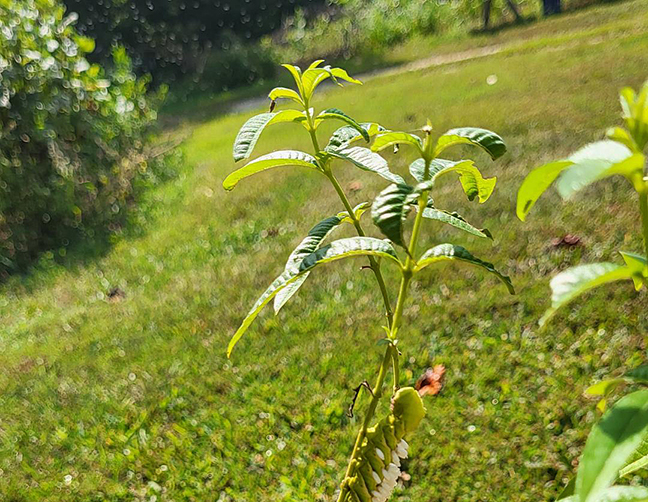Welcome!

Tomato hornworms infested with predator wasp eggs are not an uncommon sight in our gardens in August and September.
Death to hornworms!
I just want to go on record as saying this has been one of the worse gardening years for me in a while. Late winter was reasonably mild, then it got unseasonably cool, rained too much and then not enough, and finally turned off blazing hot. I will likely be spending the next two weeks just pulling out what is left of my pitiful tomatoes, beans and peppers.
I’d like to say I’ll be pulling the okra and squash plants. Sadly, I was swamped by some family matters that kept me running back and forth to Catawba County earlier this year and I missed planting okra. I did get the squash plants in. They were looking great, too — until the deer decided to eat them.
Stupid deer. Nobody told them they aren’t supposed to like hairy-leaved plants like squash. I’ve never had a problem with deer in the squash patch. Naturally, this was one area of the garden that I didn’t fence off. I think the spindly-legged bastards decided to eat the squash just for spite because they couldn’t get to the tasty peppers and tomatoes. (I’m not sure if the editor will let me say “bastards,” so if the word gets ***’ed out, it starts with “b” and rhymes with dastard.) (Ed. — It’s the Hub. Our rules are different.)
One of the bright spots in this year’s gardening adventure was the lemon verbena plants I found in the spring. Lemon verbena (Aloysia citrodora) is a sub-tropical shrub that is supposed to be hardy to zone 8. The leaves are used in teas and desserts as well as other dishes and can sometimes be hard to find. When you do find them, the herb can also be a bit expensive.
So, imagine my frustration when I checked out the lemon verbena one day and found a hornworm on it. Someone has obviously thrown out the gardening rule book! Tomato and tobacco hornworms (Manduca quinquemaculata, M. sexta) are supposed to eat tomato plants, pepper plants, tobacco plants — anything in the nightshade family. This includes jimson weed and horse nettle weeds. I can’t find any source that suggests they like to season their normal diet with lemon verbena leaves.
You’ll notice in the accompanying picture that this invader has some prominent white spikes on its back. These are eggs from a predator wasp (Cotesia congregates). The white eggs are one of the reasons we often notice hornworms in the first place. Otherwise, their green coloring causes the caterpillar to blend right in with the plant leaves it is eating.
Normally, I might feel a twinge of pity for anything being infested in such a gruesome way. The eggs will eventually hatch and eat the caterpillar’s innards. This is a favorite tactic of predator wasps. I frequently see them in the landscape when they have stunned a spider. They drag the spider into a hole in the ground, lay eggs on it and fly off. The wasp babies have a meal all ready and waiting when they hatch.
Sounds like a science fiction movie, doesn’t it?
Anyway, this year I’m cheering for the predator wasps. I’m taking ghoulish delight in this particularly dark side of the circle of life because, well, it’s been such a crappy gardening year. As temperatures cool, I’ve made arrangements for someone to over winter my lemon verbena, just to be on the safe side. When the garden is put to bed and I’m sipping lemon verbena tea in my cozy living room, I will have put this year’s disappointments behind me. As every gardener knows, the best gardens we grow are on the planning board for next year.
Mine will have perfect weather, timely plantings and no hornworms!
